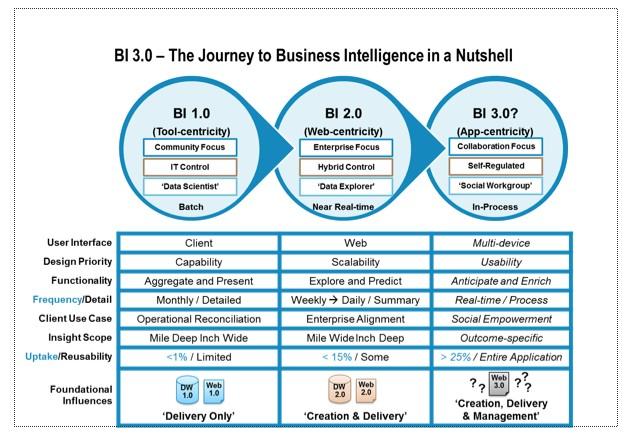## What to Do When Involved in a Car Accident?
Vehicular accidents are startling incidents, but it’s crucial to remain composed and take the appropriate steps to protect ourselves. If you ever find yourself in such a situation, follow these guidelines.
## Stay Calm and Assess the Situation
Oops! You’ve just been in a car accident! In the immediate aftermath, your heart’s pounding like a drum, and your mind’s racing. Don’t panic; try to collect your thoughts. Pull over to a safe spot, turn on your hazard lights, and cut the engine. It’s like taking a deep breath before diving into a pool.
Check yourself and your passengers for injuries. Even if you don’t feel anything right away, it’s possible to have hidden injuries, so it’s essential to get checked out by a health professional as soon as possible. If you or anyone else is severely injured, don’t hesitate to call 911. Their sirens will cut through the chaos like a knife through butter.
Once the dust has settled, it’s time to assess the damage. Take a moment to gather your wits and make sense of what happened. Were there any witnesses? Did you hit another car, a pedestrian, or a tree? The details will be crucial later on, so try to remember as much as you can. It’s like putting together a puzzle, one piece at a time.
## Exchange Information and Document the Scene
Next up, it’s time to swap information with the other driver(s) involved. This includes your name, address, phone number, insurance company, and policy number. If there are any witnesses, get their contact information as well. They might provide valuable insights down the road.
Don’t forget to document the scene. Take pictures or videos of the damage to all vehicles involved, the surrounding area, and any visible injuries. These will serve as evidence if there are any disputes later on. It’s like building a case for a trial, but without the courtroom drama.
## Report the Accident to the Authorities
In most cases, you’re legally required to report the accident to the police. They will create an official report that can be helpful if you need to file an insurance claim or take legal action. The police report is like a neutral referee in a game, providing an unbiased account of what happened.
## Contact Your Insurance Company
After you’ve reported the accident to the authorities, it’s time to contact your insurance company. They’ll need to know about the accident so they can start processing your claim. The sooner you report it, the sooner you can get your car fixed or replaced. It’s like getting a jumpstart on your recovery process.
## Seek Medical Attention
Even if you don’t feel injured, it’s essential to see a doctor after a car accident. Some injuries, like whiplash, may not show up immediately. A medical checkup will help rule out any hidden problems and ensure you get the treatment you need. It’s like getting a tune-up for your body, making sure everything’s running smoothly under the hood.
What to Do When Involved in a Car Accident
Exchange Information
In the immediate aftermath of a car accident, it’s crucial to stay calm and collected, even though it can be a stressful and overwhelming experience. One of the first steps you should take is to exchange essential information with the other drivers involved and any witnesses who might have seen the accident. This information will be vital in the event of a police report or insurance claim.
Be sure to get the following details from each driver and witness involved:
- Full name and contact information (address, phone number, email)
- Driver’s license number
- Insurance company and policy number
- Make, model, and license plate number of each vehicle involved
- Date, time, and location of the accident
- A description of the accident, including any contributing factors or unusual circumstances
- Names and contact information of any passengers
It’s essential to be thorough when gathering this information, as it can help establish fault and determine liability. Don’t hesitate to ask for help from bystanders or emergency responders if you’re feeling overwhelmed or unable to collect all the necessary details.
What to Do When Involved in a Car Accident
When involved in a car accident, ensuring the safety of oneself, passengers, and others and taking the necessary steps can be overwhelming. To navigate such situations more effectively, here are some essential steps to consider:
Gather Evidence
In the aftermath of a car accident, it is crucial to document the scene thoroughly. Take photos of the accident scene, capturing the positions of vehicles, any visible damage, skid marks, and road conditions. Additionally, note weather conditions, time of day, and any traffic signals or signs present at the time of the incident.
Obtain contact information from all involved parties, including drivers, passengers, and witnesses. Accurately record vehicle license plate numbers, insurance details, and any other pertinent information. If there are any injuries, seek medical attention promptly and obtain any medical reports or documentation.
If possible, draw a diagram of the accident scene, indicating the approximate positions of vehicles and objects involved. This can aid in providing a clear visual representation of the incident to insurance companies, police, or other relevant parties.
When noting visible damage, be as detailed as possible. Describe the extent of damage to your vehicle and any other involved vehicles, including dents, scratches, broken glass, or any other visible signs of impact.
Pay close attention to the road conditions at the time of the accident. Note any factors that may have contributed to the incident, such as slippery road surfaces, poor visibility, or construction zones. If there were any road hazards or obstacles, be sure to document them as well.
What to Do When Involved in a Car Accident
When you find yourself at the heart of a car accident, your mind can understandably go into overdrive. In the midst of the chaos, it’s crucial to remain calm and follow a set of essential steps to ensure your safety, protect your rights, and facilitate a smoother insurance and legal process.
1. Check for Injuries and Call for Help
Before anything else, prioritize the health and safety of yourself and others involved. Check for injuries, call for emergency medical services if necessary, and move vehicles out of traffic if possible.
2. Gather Information
Once the immediate safety concerns have been addressed, collect vital information. This includes exchanging contact and insurance information with all parties involved, taking photos of the scene, and obtaining witness statements if there are any.
3. Report the Accident to Your Insurance Company
Promptly inform your insurance company about the accident, providing them with as many details as possible. Your cooperation will expedite the claim process and protect your interests.
**
Obtain a Police Report
Contact the police and report the accident. A detailed, official police report will serve as an unbiased account of the incident, providing valuable information for insurance companies, lawyers, and any legal proceedings that may follow. Request a copy of the police report for your records.**
4. Seek Medical Attention
Even if you don’t notice any obvious injuries, it’s highly advisable to seek medical attention. Some injuries, like whiplash or internal bleeding, may manifest themselves later on. Moreover, obtaining a medical evaluation promptly will document your injuries and establish a timeline for your recovery.
– Consult with Legal Counsel
Depending on the severity and complexity of the accident, you may want to consider consulting with an attorney. A qualified lawyer can provide expert advice, represent your interests, and help you navigate the insurance claims process and the legal system if necessary.
– File an Insurance Claim
File an insurance claim with your insurance company and any other insurance companies involved in the accident. Be thorough in providing all the necessary documentation, including the police report, medical records, and photographs of the scene.
– Cooperate with Investigators
Insurance companies may send investigators to assess the accident and determine fault. Cooperate fully with these investigators by providing them with accurate information and documentation.
– Obtain a Copy of Your Medical Records
Secure copies of your medical records related to the accident. These records will provide a detailed account of your injuries, treatment, and recovery progress.
– Be Patient and Persistent
The insurance claim process can be lengthy and sometimes frustrating. Stay patient and persistent in following up with your insurance company and other parties involved. Keep a record of all communication and documentation.
What to Do in the Aftermath of an Automotive Collision
In the Thick Of It: Staying Composed Post-Crash
In the wake of a car accident, time seems to stand still. The initial shock can leave you rattled. Still, it’s crucial to gather your wits and take these essential steps to protect yourself and others.
1. Ensuring Safety First
If you’ve had the misfortune of being involved in a car accident, your first priority should be to ensure the safety of yourself and any passengers. If possible, try to pull over to a safe location, out of the way of traffic. Switch on your hazard lights to alert other drivers and make yourself visible.
2. Assess The Situation
Take a moment to check yourself and your passengers for injuries. If you or anyone else is hurt, call emergency services immediately. Even if you don’t feel injured at the moment, it’s essential to get checked out by a medical professional as some injuries may not be immediately apparent.
3. Exchange Information
Once you’ve ensured everyone’s safety, it’s vital to exchange information with the other driver(s) involved in the accident. This includes your name, address, phone number, insurance information, and license numbers. It’s also a good idea to write down the make, model, and license plate numbers of all vehicles involved. If there were any witnesses, be sure to get their contact information as well.
4. Document The Scene
Take out your smartphone and start taking pictures of the accident scene. This will help you document the damage and provide valuable evidence to your insurance company. If you can, try to take photos from different angles to capture as much detail as possible.
5. Contact Your Insurance Company
It’s crucial to notify your insurance company as soon as possible after an accident. They will be able to guide you through the process of filing a claim and getting your car repaired or replaced. To ensure a smooth process, gather all relevant documentation, including the police report, medical records, and photos of the damage.
Providing a Detailed Account
When contacting your insurance company, be sure to provide them with all the details of the accident. This includes:
* The date, time, and location of the accident
* A description of what happened leading up to and during the collision
* The names and contact information of all drivers and passengers involved
* The make, model, and license plate numbers of all vehicles involved
* Any injuries sustained by you or your passengers
* The names and contact information of any witnesses
* Police report number (if applicable)
Providing your insurance company with as much information as possible will help them process your claim promptly and efficiently. Be sure to keep a record of your conversation, including the name of the representative you spoke with and the date and time of the call.
Conclusion
After a car accident, it’s important to remain calm and take the necessary steps to protect yourself and others. By following the tips outlined in this guide, you can help ensure a smooth claims process and get back on the road as soon as possible.
What to Do When Involved in a Car Accident
In the aftermath of a car accident, your first priority should be your safety and well-being. Here’s a comprehensive guide to help you navigate this difficult situation with ease.
Seek Medical Attention
Even if you don’t feel injured initially, seeking medical attention is crucial post-accident to uncover any potential underlying injuries. Don’t downplay the possibility of invisible damage, as adrenaline can temporarily mask pain and discomfort. A medical evaluation ensures your injuries are promptly addressed and treated.
Exchange Information
After seeking medical attention, exchange essential information with the other driver(s) involved. This includes your name, contact details, insurance information, and license numbers. Obtaining witness statements and taking photographs of the accident scene can also strengthen your case if needed.
Report the Accident
Depending on the severity of the accident, you may need to report it to the police. They will create an official accident report, which serves as a valuable record of the incident and helps expedite insurance claims.
Contact Your Insurance Company
Notify your insurance company as soon as possible. They will guide you through the claims process, help arrange repairs, and cover medical expenses. Providing them with all the relevant information can streamline the process.
Protect Your Legal Rights
Consider consulting with a personal injury attorney to understand your legal rights and options, especially if you sustained severe injuries or property damage. An attorney can provide you with personalized advice and represent your interests in settlement negotiations or court proceedings. Remember that time limits may apply, so don’t delay seeking legal assistance if necessary.
What to Do When Involved in a Car Accident
When you’re involved in a car accident, it can be a scary and confusing experience. The aftermath of a crash can be stressful, and it’s easy to feel overwhelmed by everything that needs to be done. However, staying calm and taking the right steps can help you protect your rights and get the compensation you deserve.
Document Everything
One of the most important things you can do after a car accident is to document everything. This includes taking photos of the scene, getting the names and contact information of any witnesses, and writing down everything you remember about the crash. If you’re able, take photos of your injuries as well.
It’s also important to keep a record of all expenses related to the accident, such as medical bills, repair costs, and property damage. This will help you track your expenses and make sure you’re reimbursed for everything you’ve lost.
Keeping a journal can also be helpful. In the journal, you can write down your thoughts and feelings about the accident, as well as any pain or discomfort you’re experiencing. This can help you track your progress and provide valuable information to your doctor or lawyer.
What to Do After a Car Accident
**1. Stay calm and assess the situation.** After a car accident, it’s important to stay calm and assess the situation. Check yourself for injuries and then check on your passengers. If you or anyone else is injured, call 911 immediately.
**2. Move your vehicle to a safe location.** If your vehicle is still drivable, move it to a safe location out of the flow of traffic. This will help prevent further accidents and injuries.
**3. Exchange information.** Once you’ve moved your vehicle to a safe location, exchange information with the other driver(s) involved in the accident. This includes your name, address, phone number, insurance information, and license plate numbers.
**4. Get a police report.** If there is any damage to your vehicle or if anyone is injured, you should get a police report. The police report will provide an official record of the accident and can be helpful if you need to file an insurance claim or take legal action.
**5. Take photos.** Take pictures of the accident scene, your vehicle, and any injuries you or your passengers have sustained. These photos can be helpful evidence if you need to file an insurance claim or take legal action.
**6. Get medical attention.** Even if you don’t feel injured, it’s important to get medical attention after a car accident. Some injuries may not be immediately apparent, and getting checked out by a doctor can help ensure that you get the treatment you need.
**7. Contact your insurance company.** You should contact your insurance company as soon as possible after a car accident. Your insurance company will be able to help you file a claim and get your vehicle repaired or replaced.
What To Do When Involved In A Car Accident
Being involved in a car accident can be an unnerving event. It’s a good idea to be prepared in case you are ever in this situation. Here are some tips on what to do if you are in a car accident:
Pull Over and Park
If possible, pull over to a safe location and park your car. Turn on your hazard lights to alert other drivers. If you can, take a picture of the other car involved in the accident.
Check for Injuries
First, check yourself for injuries. Then, check your passengers and the other driver(s) involved in the accident. Are they Okay, if they are not okay call for help immediately.
Call the Police
If there are any injuries, you should call the police. The police will create a report of the accident that can be helpful for insurance purposes.
Exchange Information
Once you’ve called the police, exchange information with the other driver(s) involved in the accident. This includes your name, address, phone number, insurance information, and license number. You can take photos of all the information they give you with your phone.
Take Photos
If possible, take pictures of the accident scene. This will help you document the damage to your car and the other car(s) involved in the accident.
Get Witness Information
If there were any witnesses to the accident, get their names and contact information like telephone number and email addresses. Their statements can be helpful if there is a dispute about what happened.
Report the Accident to Your Insurance Company
You should report the accident to your insurance company as soon as possible. They will be able to help you file a claim and get your car repaired or replaced.
Hire an Attorney (Optional)
If the accident was serious or there are any disputes, you should consider hiring an attorney to represent you. An attorney can help you get the compensation you deserve for your injuries and damages.




Leave a Reply